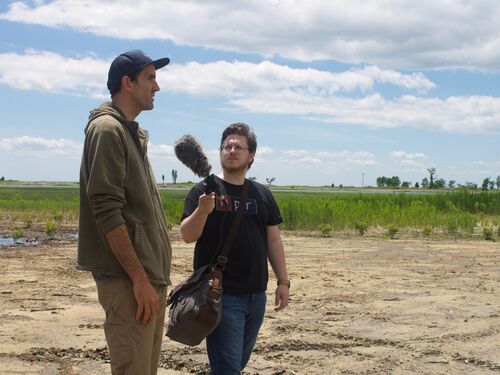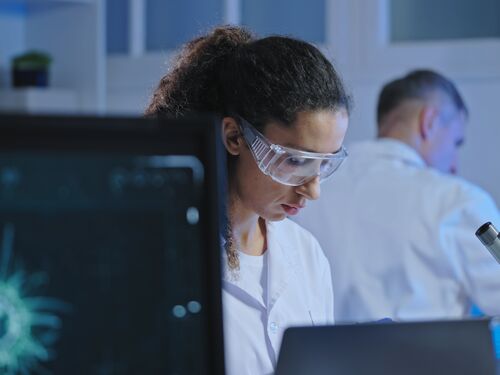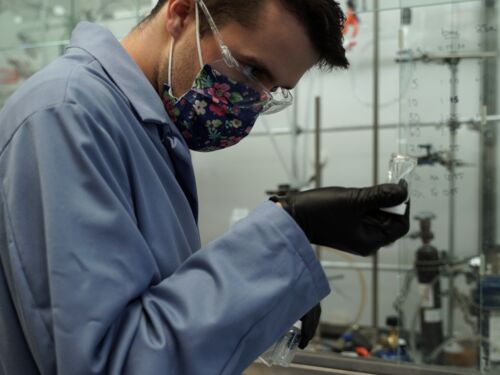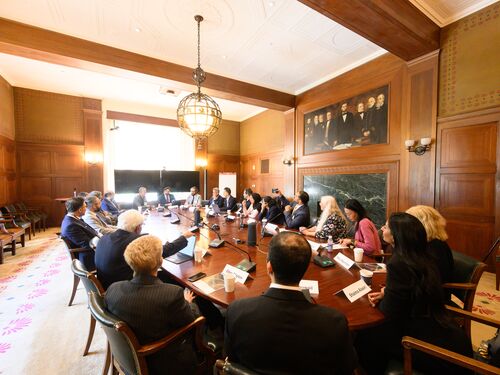Mobilizing the Academic Research Community in the Fight Against COVID-19
Feature Story
By Sara Frueh
Last update April 15, 2020
At colleges and universities around the nation, scientists and graduate students are seeking out ways to bring their knowledge, skills, and resources to bear in the struggle against COVID-19. Their efforts and how they can be expanded — and what lessons can be learned from them — are the subject of an online discussion series running throughout the month of April, organized by the National Academies’ New Voices project and the Board on Higher Education and Workforce.
During the first discussion on April 9, speaker Lisa Hirschhorn of Northwestern University described the range of efforts already underway at research institutions. Some academic scientists have gotten involved in direct service by dusting off their licenses and joining the front-line medical response or by quickly shifting their laboratories to conducting COVID-19 testing, she said. Others are helping to generate new knowledge — for example, by using models to predict the timing of surges, by testing new potential therapies, or by studying the virus itself. Still others are trying to integrate new information in ways that can support policymakers as they make decisions.
Panelist Amy McDermott, a science journalist at PNAS, identified two hurdles that are keeping more academic laboratories and researchers from getting involved in the COVID-19 testing effort — a lack of CLIA (Clinical Laboratory Improvement Amendments) certification, which gives labs the legal right to handle human diagnostic samples, and a lack of specialized training in handling human samples. She relayed a suggestion she heard from two graduate and postdoctoral biomedical researchers after she wrote an article on the subject: After this pandemic ends, state-level training could be created to provide specialized training in handling human samples to scientists who already have PCR experience, allowing them to be ready to volunteer quickly in the future.
Scientists’ willingness to volunteer was emphasized by the Broad Institute’s Michael Wells, who explained how he built a national database of scientists who have offered to help in efforts against COVID-19 — a project he launched via Twitter in March. “I was overwhelmed by the response,” said Wells; he partnered with endcoronavirus.org to further develop the project, and the database of volunteers now includes about 9,000 scientists from across the country. “Our mission is to be a resource to decision-makers in health departments, in governors’ offices, in universities and hospitals,” Wells said, noting that the project is also supporting the efforts of scientists working on a local level. He voiced support for the creation of a reserve force of skilled scientists who can readily be activated in the event of future outbreaks.
Matthew Golden from the University of Washington School of Public Health stressed the need to better integrate research systems and public health systems as we prepare for outbreaks in the future. “Why have we developed our research/academic infrastructures and public health infrastructures so separately?” he asked. “What would create surge capacity, at a much greater level, is much more shared faculty.” Such integration would be welcomed by faculty and students, he added, noting that many students are seeking careers at the intersection of public health practice and research.
Watch the archived discussion on Vimeo. The next discussion, starting at 3 p.m. ET on April 15, will focus on how laboratories are shifting research agendas. Registration, together with a list of future discussion dates and topics, is available here.
More like this
Discover
Events
Right Now & Next Up
Stay in the loop with can’t-miss sessions, live events, and activities happening over the next two days.
NAS Building Guided Tours Available!
Participate in a one-hour guided tour of the historic National Academy of Sciences building, highlighting its distinctive architecture, renowned artwork, and the intersection of art, science, and culture.



